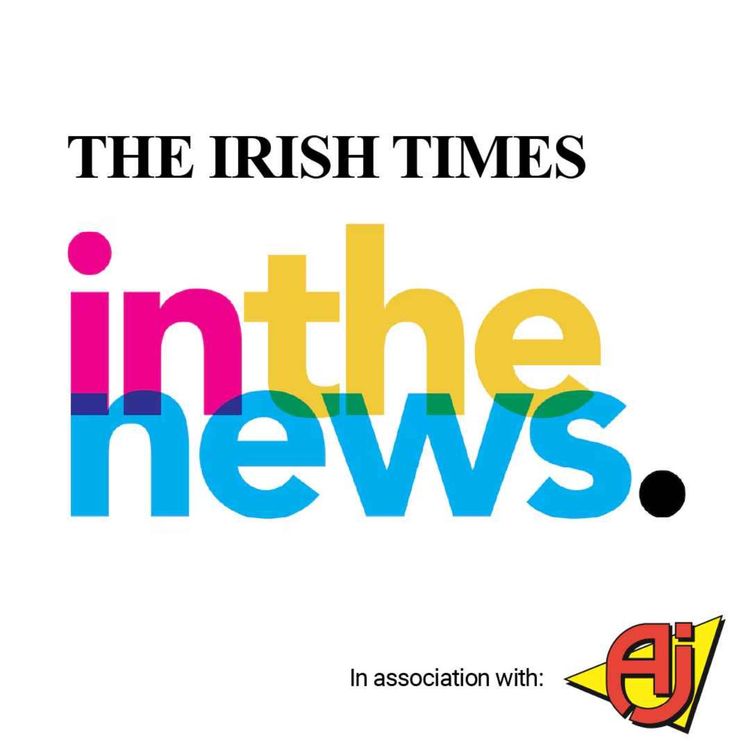Share

In The News
The Limerick man investigating some of the world's worst crimes
Malachy Browne heads up the New York Times’s visual investigations unit where he and his team investigate key events, from breaking news at home to war atrocities abroad, to piece together second-by-second what really happened.
The work exposes the truth of events, particularly ones that are shrouded in misinformation, conspiracy theories and official denials. He and his team have won two Pulitzer Prizes.
Investigations, presented on the New York Times website, range from uncovering the devastating sequence of events of the atrocity at Bucha in the early days of the Russian invasion of Ukraine to plotting exactly happened in 2017 when a gunman opened fire at a concert in Las Vegas killing 60 people.
On In the News he talks about these projects and more while explaining just how his team works, from 3D modelling and AI to painstakingly exploring satellite images and mining phone records, and how the Limerick man who began his career in Dublin before moving to New York works to stay one step ahead in a media landscape flooded with fake news.
Presented by Bernice Harrison. Produced by Declan Conlon. This episode was originally published in May 2024.
More episodes
View all episodes

Tegan McGhee’s murder trial: The full story
19:10|The devastating cruelty endured by four-year-old Mason O’Connell-Conway, who was murdered at his home in Limerick in 2021, was laid bare during the trial of his father’s girlfriend, Tegan McGhee (32).Doctors reported that the child’s injuries were similar to those suffered by car crash victims.McGhee and the child’s father, John Paul O’Connell, had told paramedics that the little boy had fallen from a bunk bed in their Limerick home. He died three days later in hospital in his mother’s arms.McGhee pleaded guilty to his murder at the trial in November and on Wednesday she was jailed for life. The boy’s father has already been jailed for seven years after pleading guilty to neglect and impeding the prosecution of McGhee, knowing or believing she had murdered his son.Mason’s mother Elizabeth Conway gave a powerful and heartbreaking victim impact statement in the Central Criminal Court which court reporter Eoin Reynolds describes here.Presented by Bernice Harrison. Produced by Suzanne Brennan.
Dublin is the 11th most traffic congested city - can it be fixed?
23:53|The installation of traffic cameras at junctions in Dublin city to catch motorists who break red lights has been shelved.It’s a puzzling decision given that cameras were proven to work in a 2025 trial. And what about congestion charges? They’ve been talked about, but would they work and are they fair?As work on new elements of the Dublin City Transport Plan is set to begin – including one of the bus corridors that promise to make sense of the BusConnects route changes – Olivia Kelly, Dublin Correspondent, explains what is and isn’t getting the city moving.Presented by Bernice Harrison. Produced by Suzanne Brennan.
Is the regime in Iran about to fall?
22:45|For more than two weeks, anti-government protests have taken over the streets of Iran. The regime has responded to the demonstrations with a heavy hand. According to various human rights agencies, more than 650 people are believed to have been killed by security forces. The violence towards protestors has only intensified in recent days, with the regime shutting down access to the country’s internet and phone lines - leaving the people of Iran cut off from eachother and the rest of the world. In today’s episode Irish Times producer Suzanne Brennan talks to Bel Trew, chief international correspondent with the Independent about the background to the unrest and whether this latest uprising could signal the fall of the regime
Elon Musk’s AI app creates abusive images. Can it be stopped?
23:15|An app that allows millions of users to create sexualised images of children has brought the dangers of Artificial Intelligence into sharp focus – and shown how ineffective governments are in implementing safeguards on digital behemoths.A new feature of Elon’s Musk’s AI tool, Grok – available to users of his X platform – allows people to create intimate photographs of people without their consent and create child sex abuse imagery.Women have reported that their photos had been taken from the internet and digitally altered by strangers on X, to “nudify” them so they appeared naked or in a bikini.As Irish Times political correspondent Ellen Coyne explains there are few consequences for those who use the AI model to create illegal sexual images of women and children.Meanwhile Musk initially responded to the avalanche of international criticism of his AI tool with crying face emojis but since then the platform has reportedly moved to restrict access to the feature.Presented by Bernice Harrison. Produced by John Casey.
How the fatal ICE shooting has deepened divisions in the US
21:56|The killing of Renee Nicole Good (37) in her car on the streets of Minneapolis by an immigration officer has been witnessed by millions of people around the world.Countless bystanders took videos on their phones from all angles on the snowy suburban street as the mother and US citizen drove by, was surrounded by armed Ice (Immigration and Customs Enforcement) agents and was shot dead.So it should be possible to quickly reach a definitive conclusion as to what happened.But as Rachel Leingang, Midwest political correspondent for Guardian US, explains the killing instantly became politicised in a city where tensions were already on a knife-edge, with armed Ice officers swarming neighbourhoods as part of the Trump administration immigration crackdown.Presented by Bernice Harrison. Produced by Suzanne Brennan.
Trump wants Greenland - what’s to stop him taking it?
24:30|On Sunday US president Donald Trump said he needed Greenland “very badly”. It’s a sentiment he expressed during his first term, but what then sounded like something of a fantasy wishlist has now hardened into policy.Reaction to Trump’s intentions has taken on some urgency following his removal by military force of Venezuela’s president, Nicolás Maduro, last weekend,Quite how he might move to take over the vast Arctic territory is unclear.This week the White House said the use of the US military is “always an option”; it also said it might seek to buy the island from Denmark.Greenland is part of the Danish kingdom. Mette Frederiksen, the Danish prime minister, has said an attack by the US on a Nato ally – Greenland as part of Denmark – would mean the end of the alliance.But in a week that saw the Trump administration doubling down on its intention to take over the mineral rich island, the EU is scrabbling to respond to the threats from Washington in a way Trump might take seriously, as Brussels-based Irish Times reporter Jack Power explains.Presented by Bernice Harrison. Produced by Suzanne Brennan.
Ken Early on why Ruben Amorim and Manchester United were a disastrous match
27:40|Since he took over as head coach at Manchester United Ruben Amorim has been outspoken, dishing up post-match commentary that frequently centred on how poor he felt his players had performed.On January 4th, after a desultory 1-1 draw with Leeds, he took aim, not at his players but at United’s top brass – his bosses. He was, he said, the manager, not the coach; the heavy implication being that he wanted to make his own decisions and that management were getting in his way.On Monday it was announced that Amorim would be leaving the club with immediate effect.Once again Manchester United is on the hunt for a manager – or to be more accurate in the modern game – a coach.Irish Times columnist Ken Early explains why Amorim was never a good fit for United and why coaches at top-flight clubs have an increasingly short sell-by date.Presented by Bernice Harrison. Produced by John Casey.
Trump says 'we run Venezuela'. Is that true?
24:01|On Monday, captured Venezuelan President Nicolás Maduro and his wife Cilia Flores appeared in a court in New York City on charges including drug-terrorism conspiracy, cocaine-importation conspiracy, and possession of machine guns and destructive devices. The pair pleaded not guilty to all charges, with Maduro telling the court, “I’m innocent. I am not guilty … I am a decent man. I am still president of my country”. But if Maduro is in New York, who is in charge in Venezuela? US President Donald Trump says, “we are” – but what does that really mean? In today’s episode, Tom Hennigan who reports on South America for The Irish Times explains what Maduro’s arrest means for the country and its people. Presented by Declan Conlon, produced by Suzanne Brennan.
Hyrox: Should you try this fitness fad to get fit after Christmas?
24:15|When Hyrox came to Dublin’s RDS last November, it was a completely sold out event. The tickets for the fitness race were snapped up in minutes of going on sale, with organisers adding extra dates just to meet demand. But one person who was able to get their hands on a ticket was Irish Times sports writer Gordon Manning. The only problem? He'd never tried Hyrox before and hadn’t done any training for the event. Manning - who isn’t even a member of a gym - decided to take on the gruelling challenge to find out why this fitness craze has become so popular in Ireland and around the world. But with so little preparation, did he survive the race? And what does it involve anyway? In today’s episode, we’ll hear all about Manning's Hyrox experience, whether he’d do it again and whether you should do it too.Presented by Bernice Harrison, produced by Suzanne Brennan.